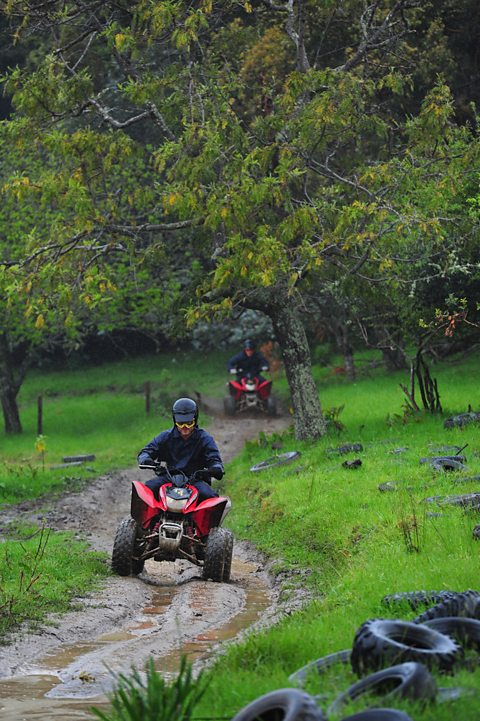Case study- The Fens, East Anglia
The Fens in East Anglia is the UK's most important area for commercial arable farmingGrowing crops on a large scale for sale. farming.
The low-lying land has fertile loam soils and a warm climate ideal for growing crops like wheat, barley, sugar-beet and peas, which are produced on a large scale for profit.
Introduction
Many farmers in The Fens have large agribusinesses'A large-scale farming business that operates to make a big profit. which means they operate on a large scale. However farming is a tough industryThe type of work that people do. and many smaller farmers struggle to make a living.
To help increase their income, many farmers have turned to non-farming related activities. This is known as diversificationWhen farmers undertake non-farming activities to generate more income.. Farmers put their land to a variety of uses including:

Tourism
- renting out cottages as holiday homeA dwelling that is used as a second home when people go on a break.
- offering bed and breakfast facilities
- providing camp and caravan sites
enterpriseThe different skills an entrepreneur needs to possess in order to be successful. The term can also relate to a business organisation.
- fishingWhen people catch fish.
- educational toursAn activity when people are guided around and given a talk about the working life of a farm.
- cheese-makingWhen cheese is made
- cafes and farm shops
- fruit pickingAn activity when people pick fruit on a farm.
recreationAn activity undertaken during leisure time./leisure
- adventure activities such as quad-bikingAn activity where people ride four-wheeled motorbikes over rough terrain. and off-roadingAn activity which involves people manoeuvring four-wheel drive cars over rough terrain.
- paint ballAn activity which involved people stalking each other in teams and 'shooting' them with paint.
- horse-ridingAn activity involving people riding horses for leisure.
Diversification has led to an increase in tourismThe business of providing holidays for people travelling for pleasure. These travellers are called tourists. in rural areaAn area of countryside.. This can be positive as increased income is taxed and money is invested in rural areas to improve local servicesA number of activities that serve the general public for different purposes e.g. schools and shops. and natural habitatsThe surroundings in which a particular animal is able to live and thrive.. However, tourism has had a huge negative impact on the rural landscapeAn area of countryside. including:
- stone walls damaged by people climbing over them
- footpath erosionThe wearing away of trails., spoiling the sceneryThe appearance of a place.
- increased litter spoiling the look of the landscape
- tourist facilitiesServices which are provided for visitors e.g. toilets, restaurants, hotels and souvenir shops., eg camp sites, detracting from the natural look of the countrysideA rural area.
- traffic congestionWhen a road is overused and vehicles using it are unable to move freely. causing increased noise and air pollutionContaminating the air, water or ground with harmful substances. in villages
- lakes and rivers used for water sportsLeisure activities that take place in water e.g. canoeing. becoming polluted